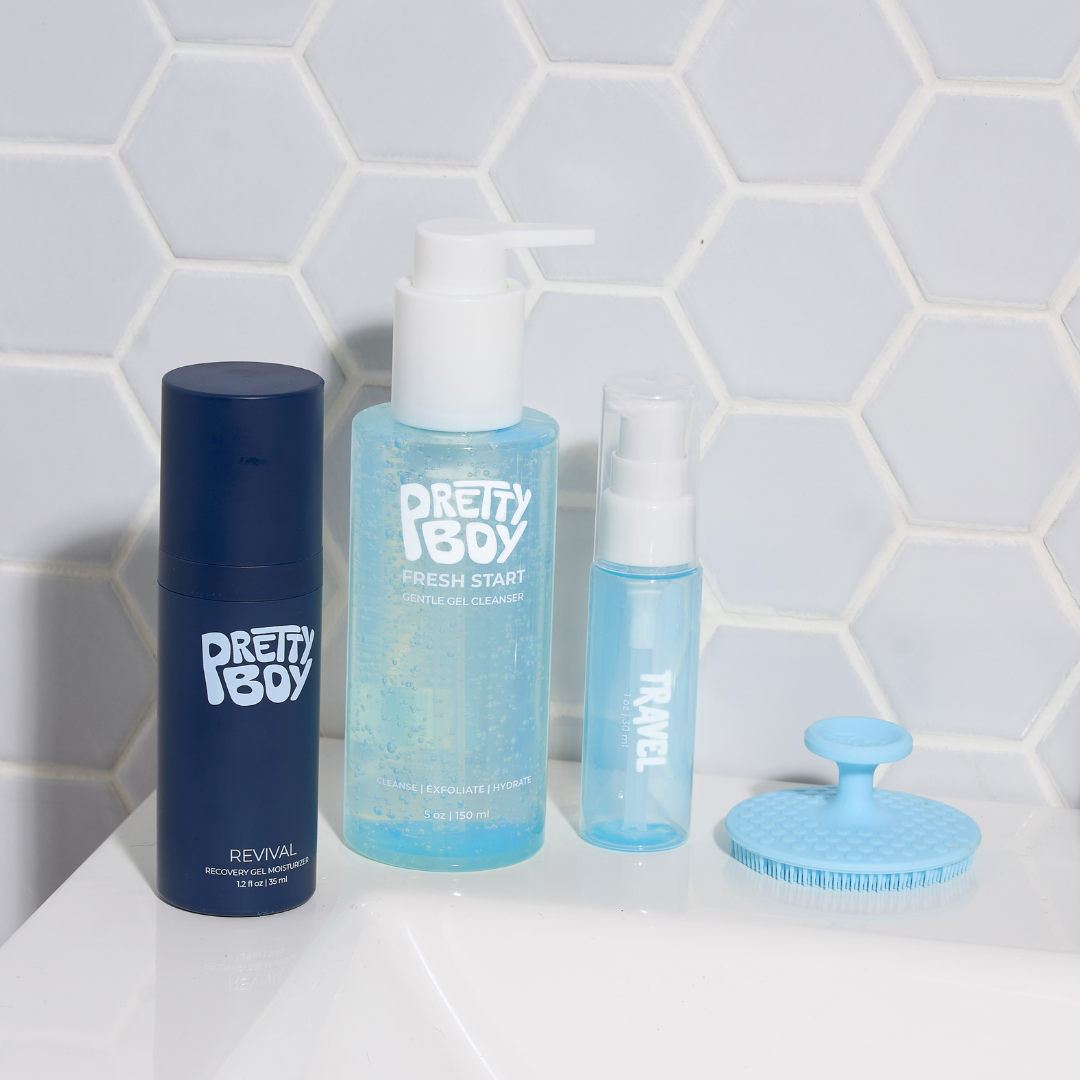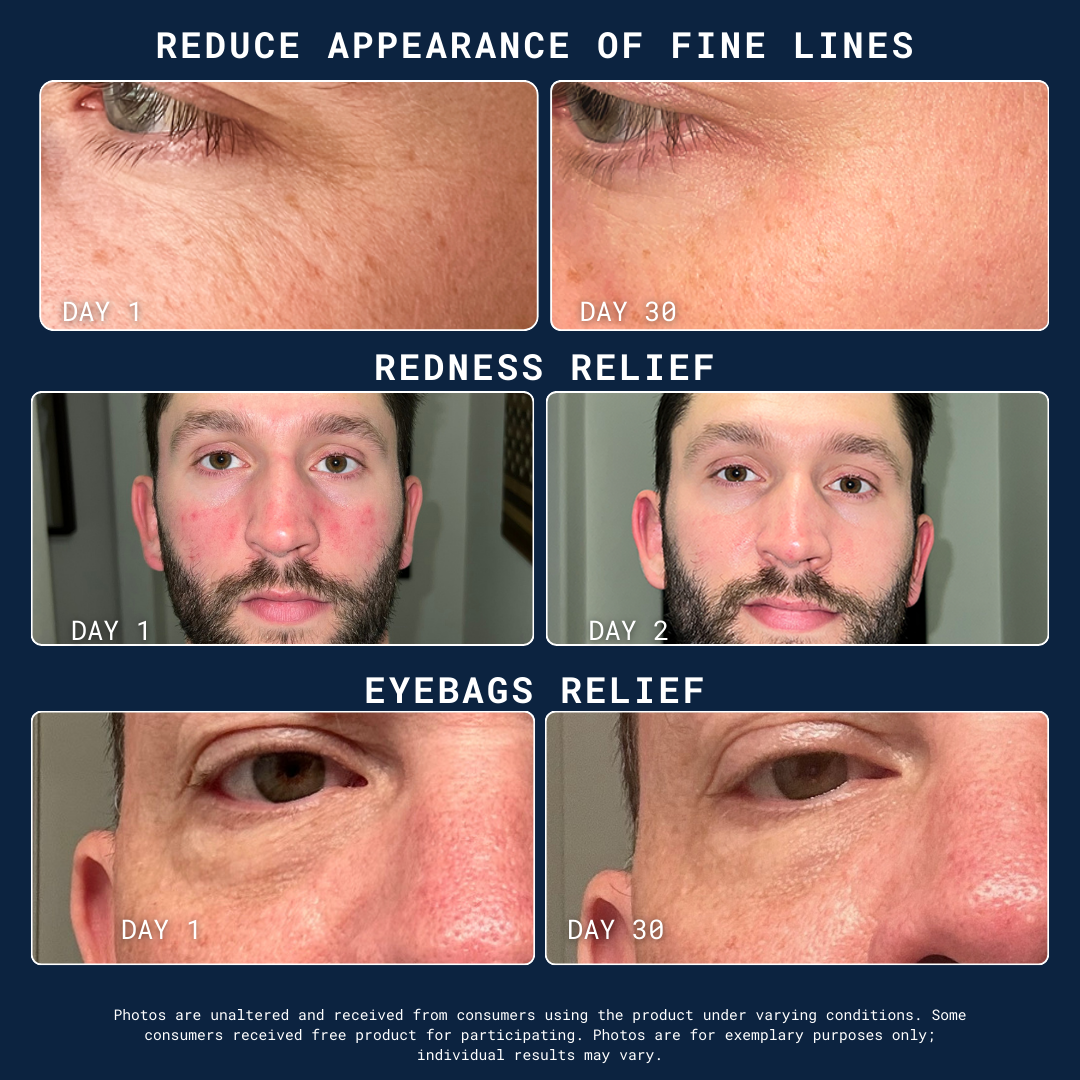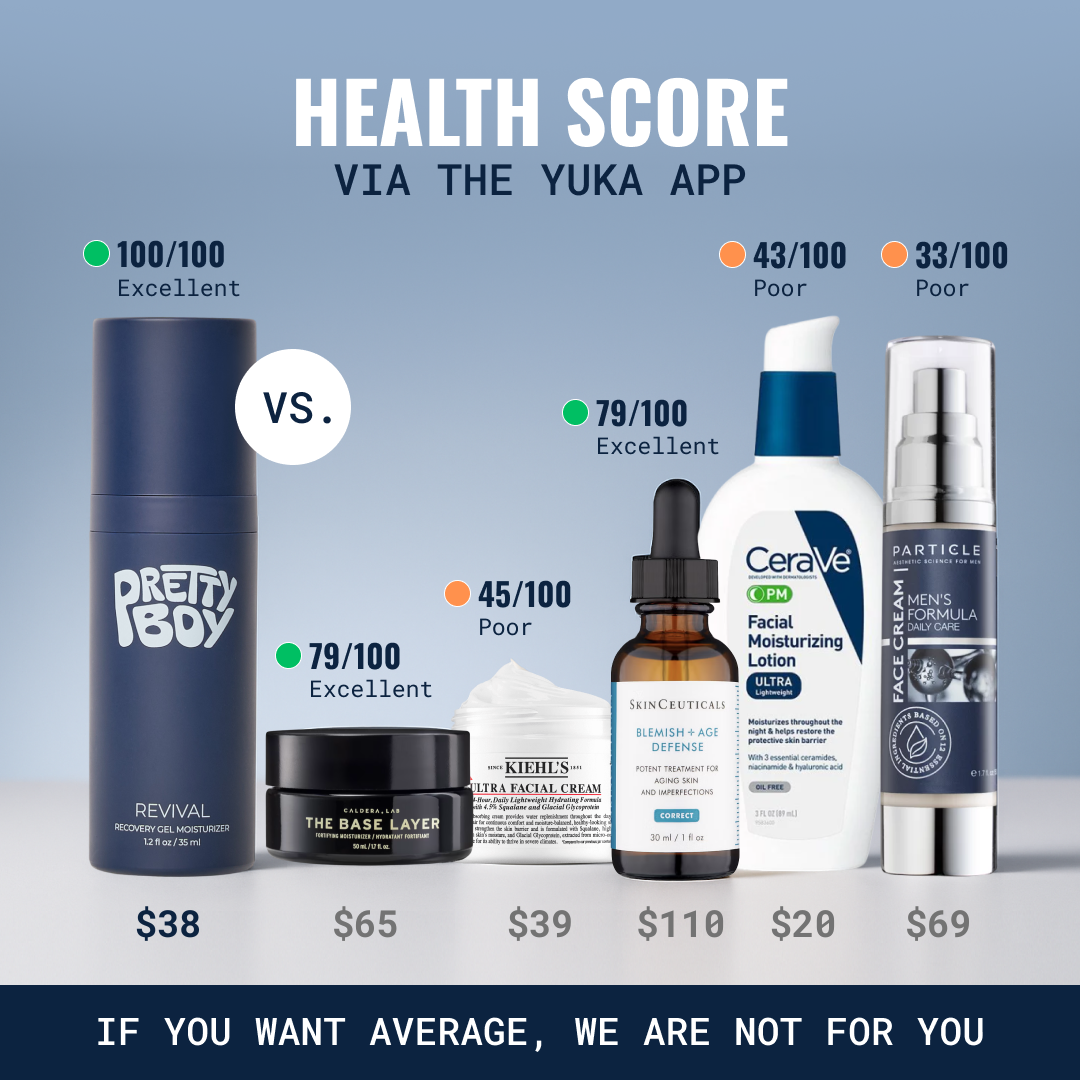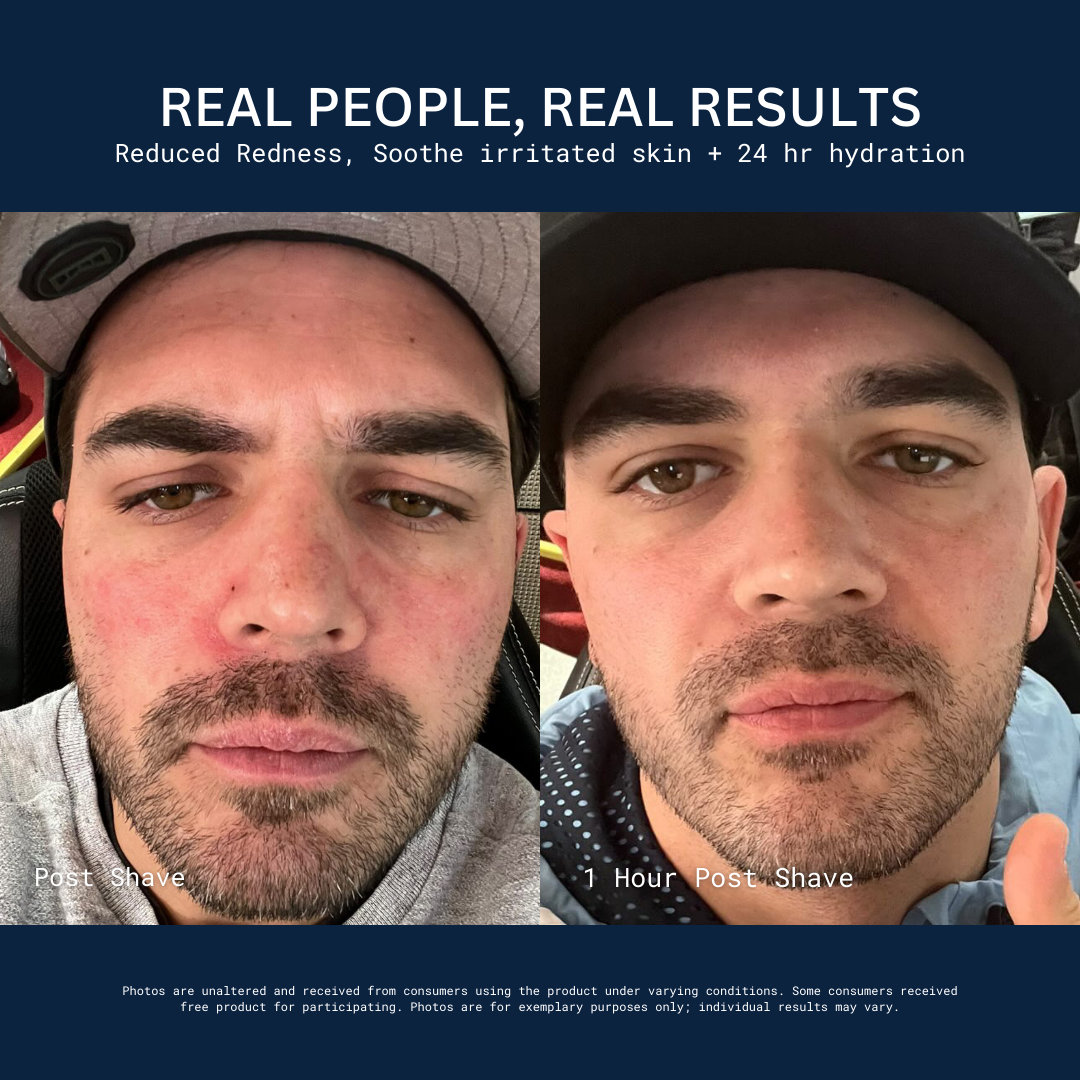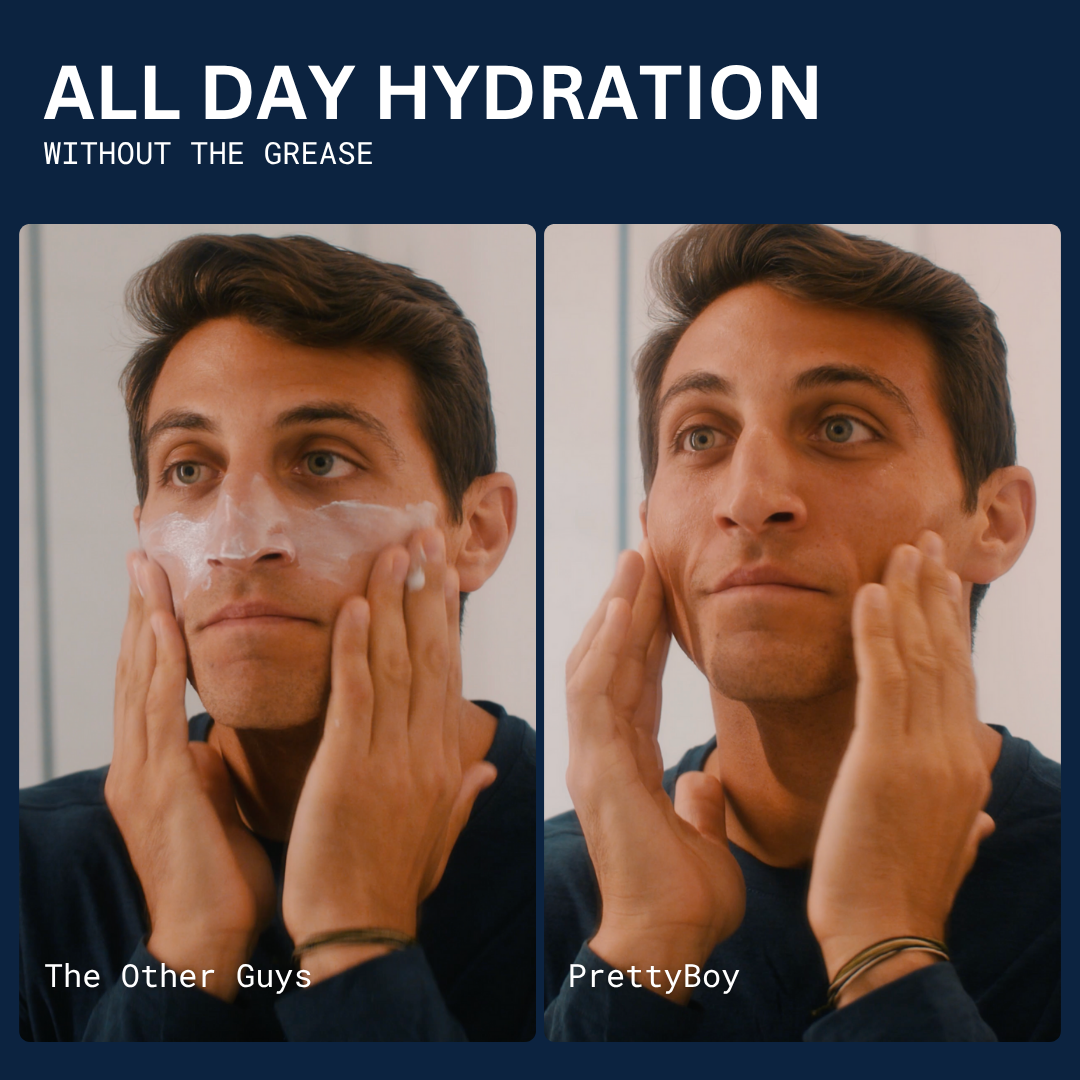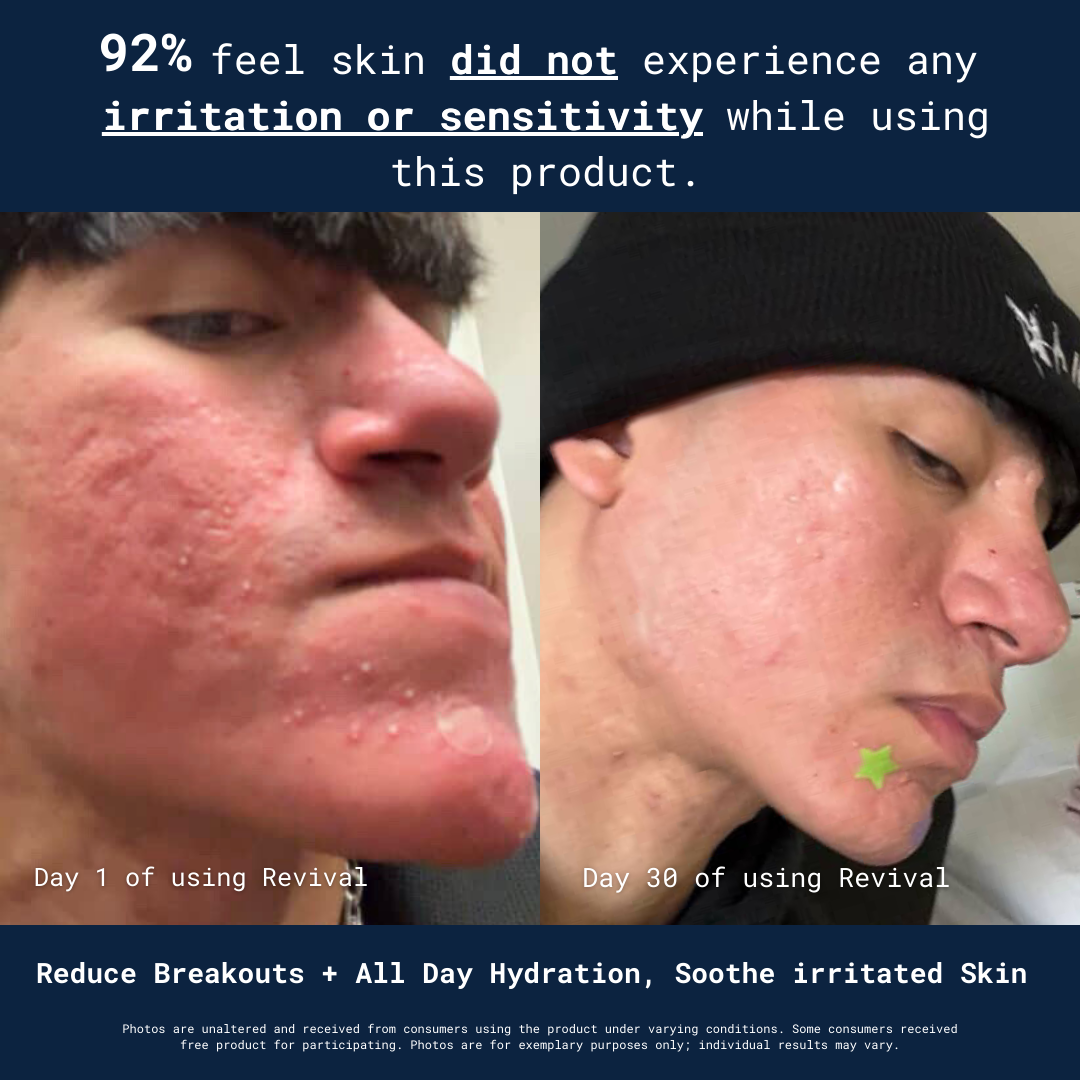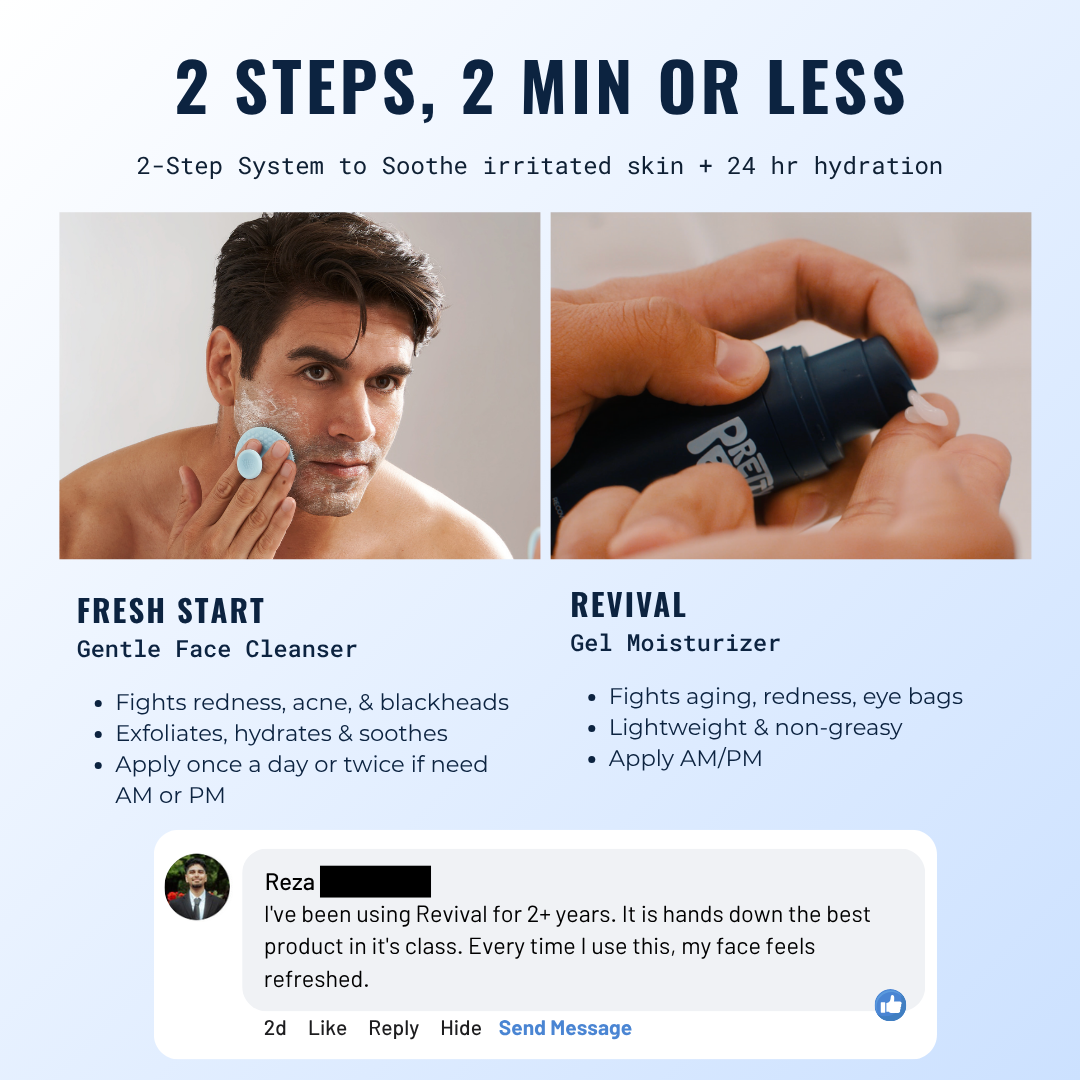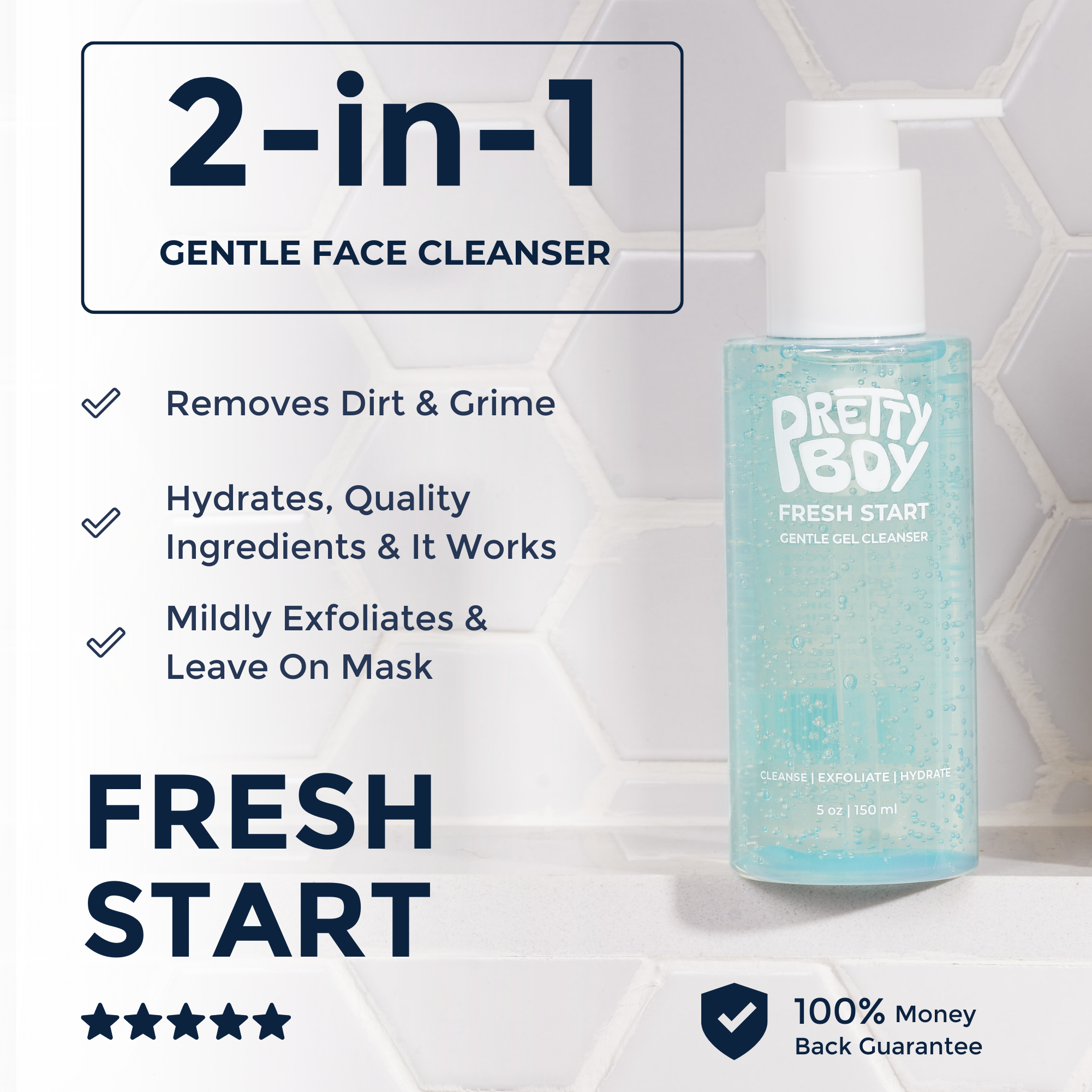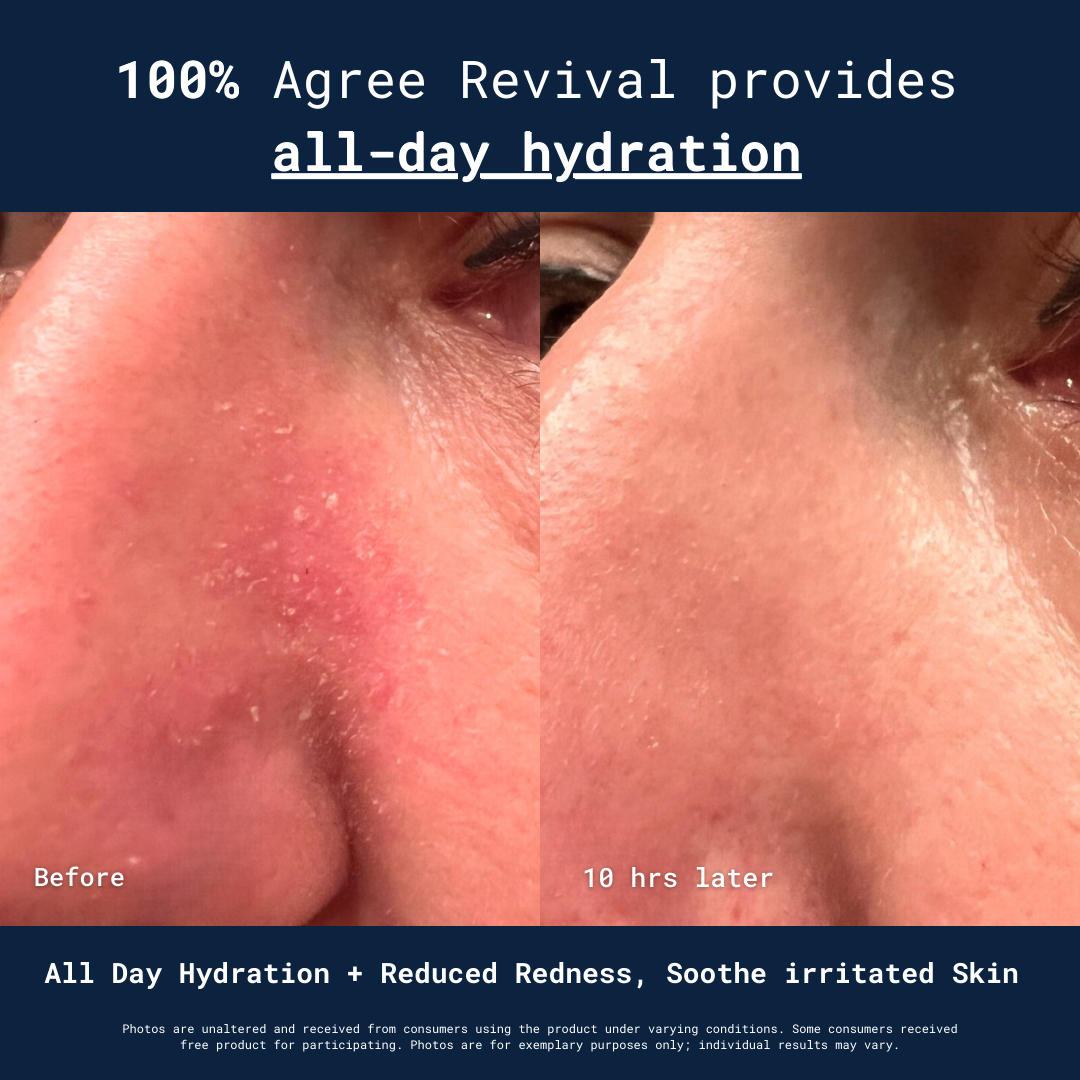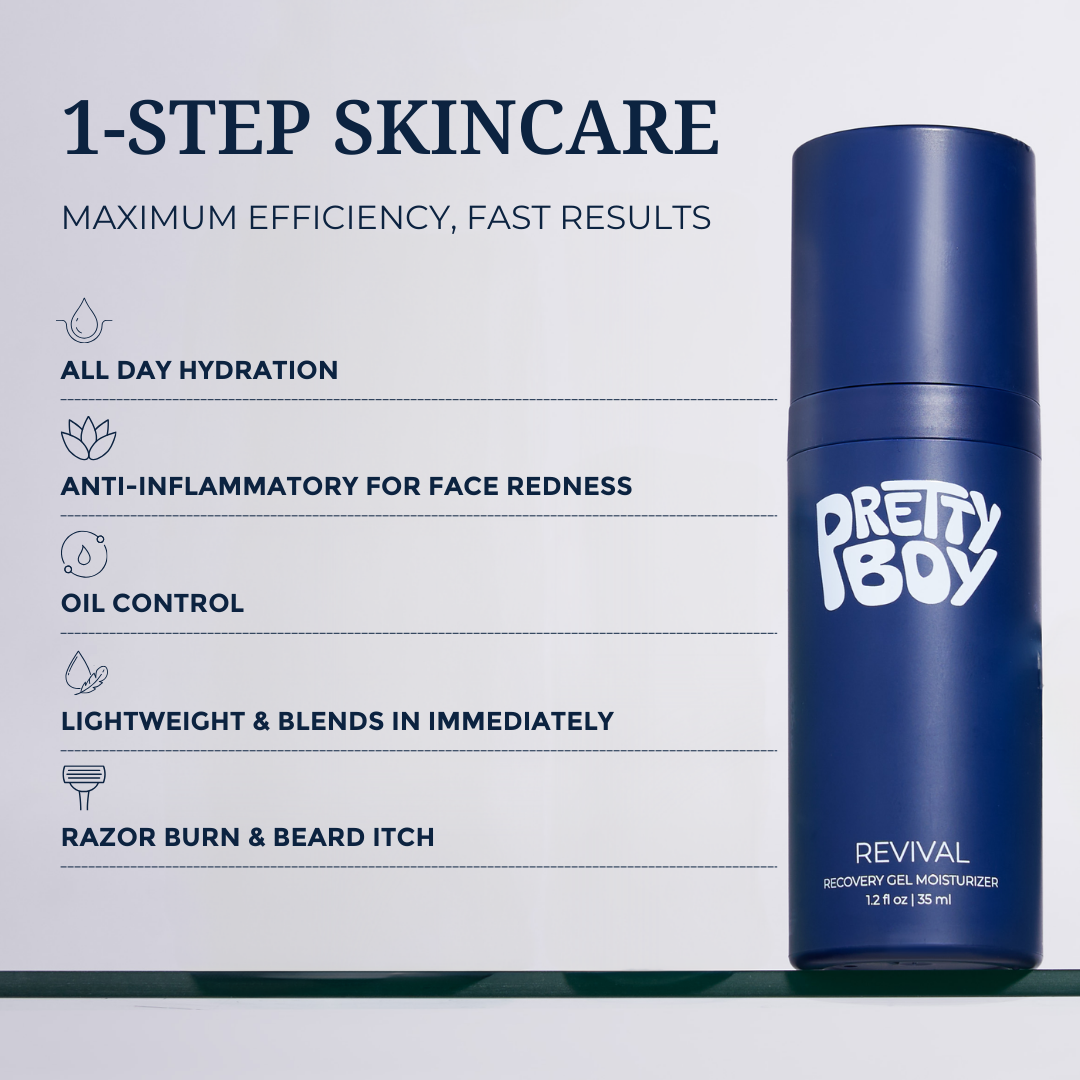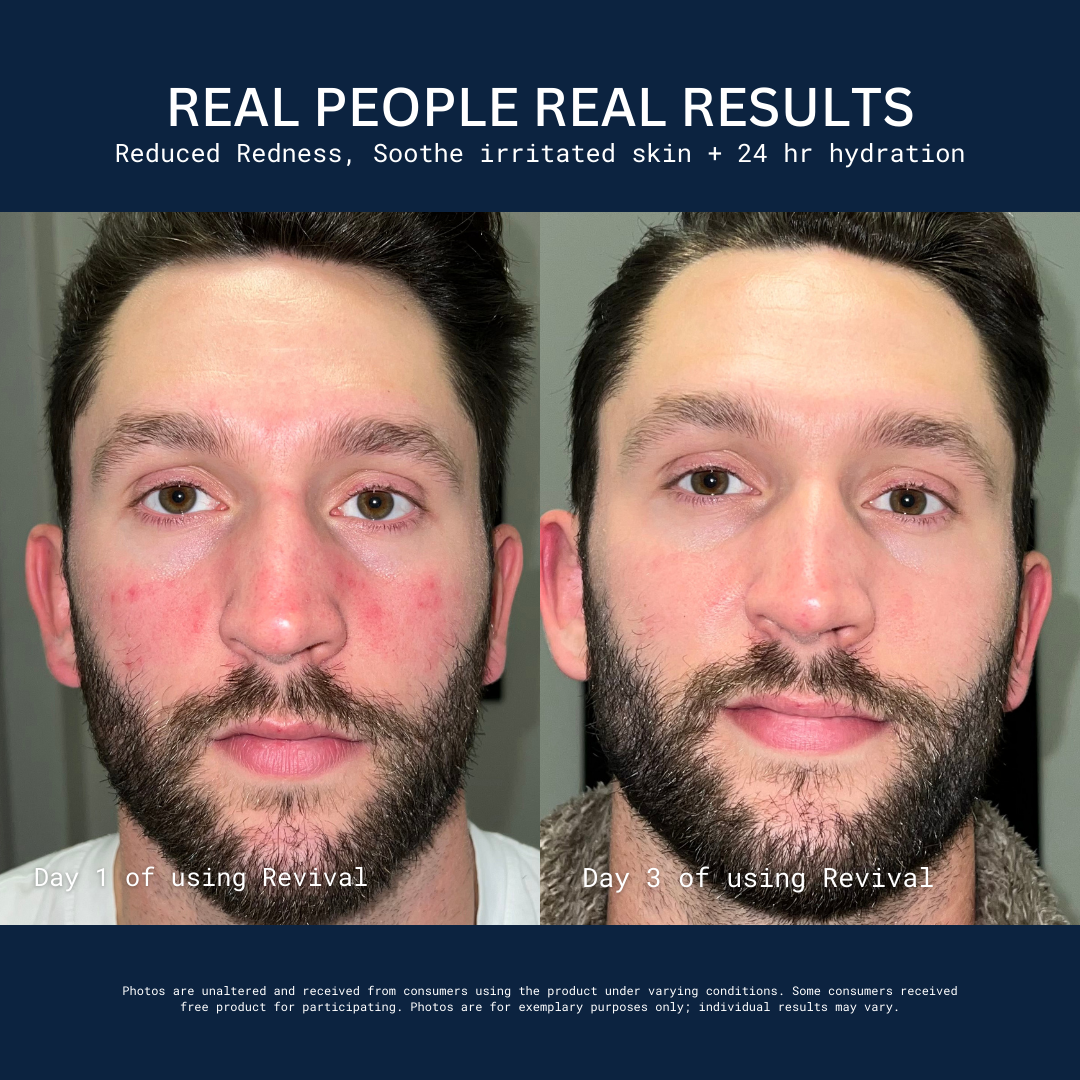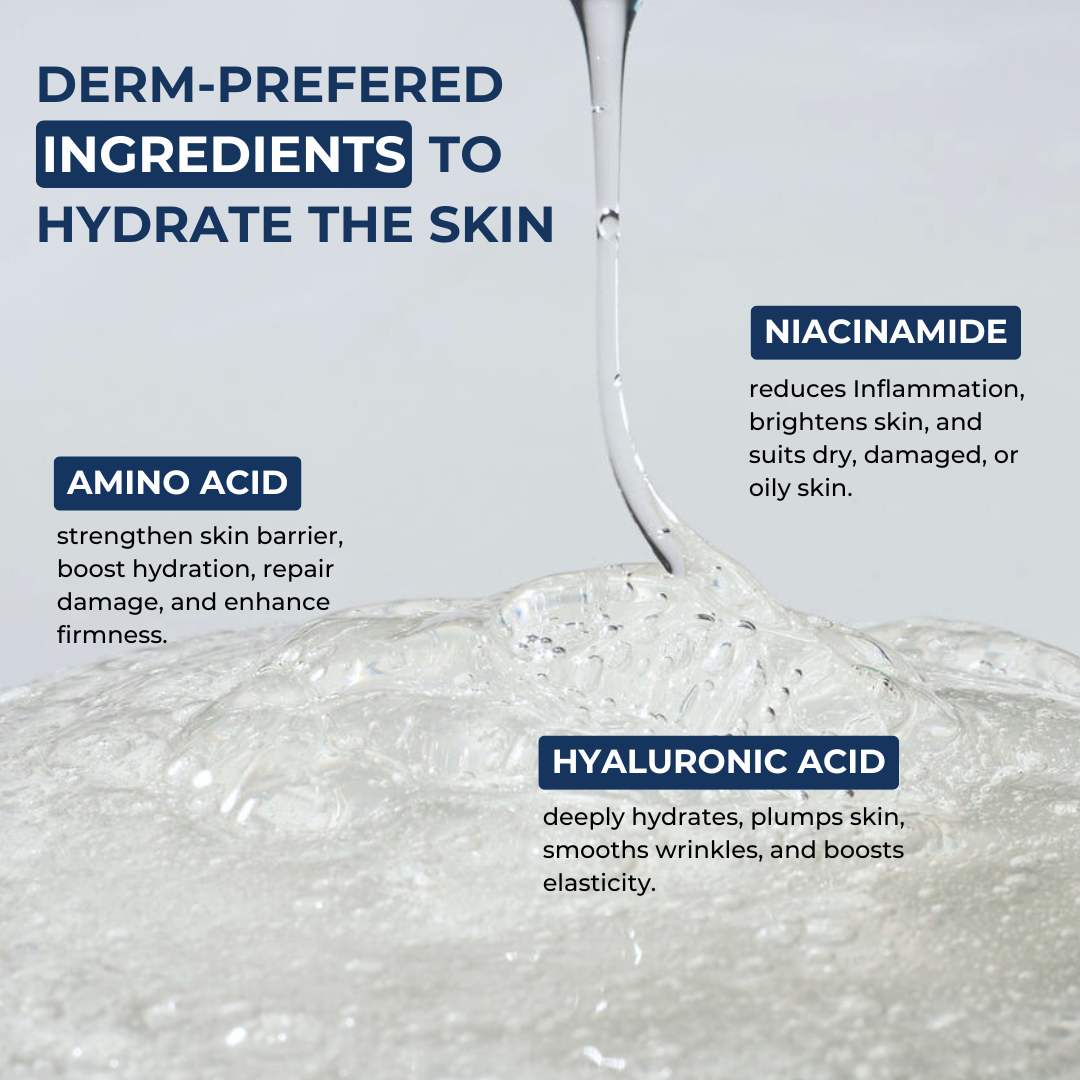Here's a Simple Men's Skincare Routine:
- Determine your skin type
- Cleanse your face twice a day
- Apply a lightweight moisturizer morning and night
- Use sunscreen when you go outside
- Exfoliate your face twice a week
If you’re reading this, chances are you’ve been hounded about the importance of starting a skincare routine. That might lead you to believe you’re the only dude on earth without one, but a whopping 71% of guys, opens in a new tab between the ages of 18-34 don’t follow any kind of skin care regimen.
An easy explanation is that guys are just lazy. But our theory is that the sheer volume of products and bogus advice causes guys to give up and keep scrubbing their faces with 3-in-1 neon goop.
Lucky for you, we come bearing good news: You don’t need an elaborate/expensive skincare routine like Patrick Bateman’s, opens in a new tab with a cabinet full of toners, serums, scrubs, eye sticks, opens in a new tab, lasers, lotions, and balms.
The key is settling into a skincare routine that you can stick to for years—not one you get burnt out of after a few weeks. And that starts with the essentials: a cleanser, a moisturizer, and an exfoliant.
Read on to learn why you should care about your skin in the first place and get a step-by-step men’s skincare routine that even the laziest dude can follow with ease.
3 Reasons All Men Need a Skincare Routine
Whether you’re a gym rat, opens in a new tab or a gamer that hasn’t seen daylight in months, there’s no excuse to not have a skincare routine. Men tend to have oily and thicker skin, mostly due to the effects of testosterone. If you skip out on skincare, you could end up with a face that looks slimy, wrinkly, and tired.
1. Make Your Skin Look Healthy
Daily skincare helps you maintain a brighter, smoother, softer complexion, while also preventing acne breakouts.
2. Reverse Signs of Aging
Following a skincare routine can slow the appearance of wrinkles, fine lines, under-eye bags, opens in a new tab, and dark circles that make you look older than you are.
3. Boost Your Confidence
There’s a certain swagger that comes with fresh, clear, healthy skin. You feel happier and more confident in yourself—maybe you’ll finally ask that girl at the gym out on a date.
First, Find Your Skin Type
Before you start aimlessly Googling or roaming around your local skincare aisle, you need to figure out your skin type. This helps you know what products you need so you can maximize the results of your skincare routine, opens in a new tab.
Most men have one of these five skin types.
Oily Skin
This results from excess sebum production from the skin's sebaceous glands. These glands exist under the skin, and sebum is a fat which helps moisturize and protect your skin. But too much of a good thing isn’t great.
For oily skin, opens in a new tab, opens in a new tab, focus on
- Purchasing “oil-free” products
- Use a “mild” or “gentle” face wash
- Use sunscreen whenever you spend an extended period of time outside
- Apply moisturizer daily (preferably one with SPF 30 or higher)
Pro tip: Don’t scrub harder when you’re washing your face. It will only irritate the skin and actually increase the production of sebum.
Dry Skin
This means your skin is dehydrated. This can be genetic or caused by the weather or your environment. Dry skin usually results in irritation, itchiness, redness, and overall discomfort.
If you’re dealing with dry skin, follow these tips:
- Apply moisturizer regularly (especially after shaving, opens in a new tab and showering)
- Wash your face with a “gentle” cleanser
- Protect your skin from extreme cold and heat through clothes and sunscreen
If you suffer from dry skin, you know how much it can itch. Before you purchase an anti-itch product, ask your dermatologist. These products have the potential to actually increase the itch or damage your skin in other ways.
Sensitive Skin
Sensitive skin isn’t an official medical diagnosis—it’s more of a generalization for anyone with skin that has a bad reaction to the ingredients in certain skin care products.
Sensitive skin is generally a side effect of an underlying dermatological condition, like eczema, opens in a new tab. There are countless products made for people with sensitive skin, but the best solution is to go to your dermatologist and have them explain your condition and the specific steps you need to take to address it.
In general, however, a skincare routine for those with sensitive skin should focus on:
- Soap-free cleansers
- Non-irritating moisturizers and emollients
- Protecting your skin from the sun by regularly using sunscreen, opens in a new tab
Combination Skin
A combination skin type means your skin is oily, dry, and balanced—all in different places at the same time. Often, the “T-zone” (your nose, opens in a new tab and forehead) are oily, while the cheeks and chin are normal. And then you may have dry ears or lips.
For people with combination skin, opens in a new tab, the ideal routine involves the following:
- Apply products to specific areas
- Space out your routine between the morning and evening
- Use a hyaluronic acid based moisturizer
- Use a sunscreen that doubles as a moisturizer
- Don’t use multiple products that do the same thing
When in doubt, ask your dermatologist for some tips.
Normal Skin
It seems rude to say some people have “normal” skin, as if everyone else has abnormal skin. The truth is that normal skin refers to a more balanced level of oil, water, and other nutrients. Some people are born with this balance, some aren’t.
Guys with normal skin still need a thorough and regular skincare routine to prevent breakouts and prevent signs of premature aging, opens in a new tab.
Simple Men's Skincare Routine
Here’s a skincare routine that even the laziest man on earth can follow. If you stick to this, you’ll be light-years ahead of most guys.
Wash Your Face Twice a Day
Wash your face first thing in the morning to remove any product you applied the night before, as well as any sweat, bacteria, and grime that built up while you were asleep. Then cleanse in the evening, before you go to bed.
You’d think this step would be obvious, but a staggering 63% of guys, opens in a new tab don’t wash their face regularly.
Choosing the best men's face wash comes down to your skin type, as mentioned above. For example, if you have oily, acne-prone skin, you might need a facial cleanser with salicylic acid.
Pro tip: Wash your face with cool or lukewarm water. Hot water nukes the healthy oils off your face and dries out your skin.
Moisturize Twice a Day
Moisturizing prevents your face from becoming too dry or too oily. Think of it as an equalizer that maintains ideal moisture levels all day long. Moisturizer also helps reduce inflammation, which leads to a breakdown of collagen and accelerated aging.
The best time to moisturize, opens in a new tab is right after you wash your face (once in the morning, again at night, opens in a new tab) to lock in the hydration. 1-2 pumps work best for most guys, but you can use whatever amount leaves your face feeling hydrated and refreshed.
A lot of guys shy away from moisturizer because it makes their face feel greasy, opens in a new tab—we don’t blame them. That’s why we made Revival, opens in a new tab our 6-in-1 anti-aging gel moisturizer that targets dry skin, fine lines, dark circles, and redness.
No wonder dermatologists prefer PrettyBoy over the other guys…
Exfoliate Your Face Twice a Week
Exfoliating, opens in a new tab is a fancy word for removing dead skin cells from your face. It keeps your face bright, smooth, and soft—while also preventing pimples and minimizing pores.
You can tackle this task with a physical scrub or a chemical exfoliant. Either way, it’s best to exfoliate at night (after cleansing and before moisturizing) so your skin can recover while you rest.
Use Sunscreen When You Go Outside
Sunscreen, opens in a new tab isn’t just for the days where you spend 10 hours baking on the beach. Frequent exposure to UV rays can cause sun damage, dryness, premature aging, and can also increase your risk of skin cancer.
Turns out your mom was right after all: lather up with a lightweight, moisturizing sunscreen, opens in a new tab (ideally SPF 30 or higher). Your face will thank you when you’re older.
When Should Men Start a Skincare Routine?
They say the best time for men to start a skincare routine is in your late 20s. That might seem early, but that’s when your skin (particularly your face) begins to show the first signs of aging. We believe the best time to start is in your early 20s because preventative maintenance is the best maintenance, right?
Starting a skincare routine in your twenties is kind of like putting money into your 401K retirement plan—it might seem pointless in the present moment, but you’ll be happy as hell when it pays off in your golden years.
If you’re in your 30s or 40s, don’t panic. You can still reap the rewards of a skincare routine—just know the earlier you start taking care of your skin, the better your results will be.
3 Bonus Skin Care Tips for Men
Taking care of your skin goes beyond the products you put directly on it. You need a holistic approach to skin health, and it starts with these three tips.
1. Drink Plenty of Water
Drinking water keeps your skin hydrated, maintains its elasticity, and helps prevent wrinkles. As a rule of thumb, guys need to drink about 15.5 cups of water every day.
2. Clean Up Your Diet
If your diet consists of donuts, pizza, soda, and beer, your gut isn’t the only thing that pays the price. Nutrition plays a vital role in the health of your skin, so steer clear of foods high in fat and sugar.
3. Go to Sleep
Beauty sleep isn’t just for the ladies. A 2015 study , opens in a new tabconcluded that a lack of sleep is directly related to premature aging, diminished skin barrier function, and overall dissatisfaction with appearance.
You know the drill: get 7-8 hours of sleep every night.
PrettyBoy Makes Skincare Simple
A lot of “experts'' want to turn men’s skincare into a NASA rocket science experiment. We’re here to do the opposite.
Wash, moisturize, exfoliate, sunscreen—simple as that.
No matter your age or skin type, PrettyBoy is proven to leave your face looking and feeling fresh AF. Give it a try and see why 100% of men feel more confident in their appearance after using Revival.





